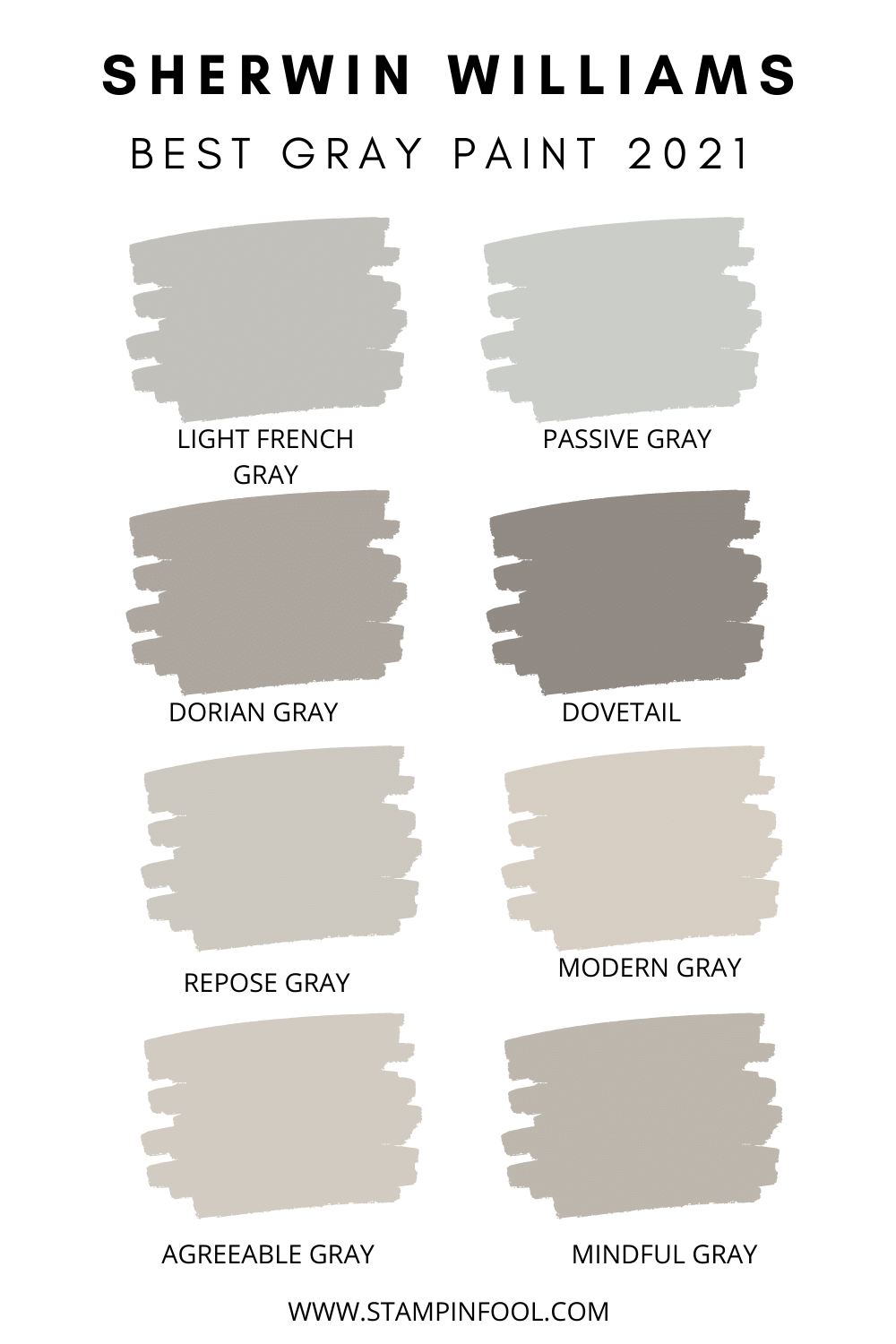The Enduring Allure of Gray Paint
There’s a certain quiet confidence in a room painted gray. It's not shouting for attention, but it’s undeniably present, a backdrop that allows other elements to shine. It’s the perfectly worn leather jacket of the interior design world, effortlessly stylish and adaptable to any occasion.
Gray paint has transcended trend status to become a modern classic. Its versatility is unmatched, capable of shifting moods with the subtlest change in undertone. From the cool, ethereal whisper of a pale dove gray to the dramatic depth of charcoal, there’s a perfect shade of gray for every space and sensibility.
What is it about this seemingly understated hue that holds such enduring appeal? Perhaps it's the sense of tranquility it evokes, a quiet retreat from the clamor of the outside world. Or maybe it’s the way it acts as a neutral canvas, allowing furniture, art, and textiles to take center stage. Whatever the reason, gray’s popularity shows no signs of waning.
The history of gray paint is intertwined with the evolution of pigments and dyes. Early grays were often created by mixing black and white, resulting in sometimes unpredictable results. As technology advanced, more sophisticated methods of producing consistent gray hues emerged, leading to a wider range of shades and undertones. From the muted tones favored in historical architecture to the vibrant, complex grays popular in contemporary design, the evolution of this color reflects changing aesthetic sensibilities.
Choosing the perfect gray is more nuanced than simply picking a shade from a fan deck. Undertones play a crucial role in determining the overall feel of a space. A gray with warm undertones, such as beige or brown, can create a cozy and inviting atmosphere. Conversely, a gray with cool undertones, such as blue or green, can evoke a sense of calm and serenity. Understanding these nuances is key to achieving the desired effect.
One of the benefits of gray paint is its adaptability. It pairs beautifully with a wide range of colors and design styles. Whether your aesthetic leans towards minimalist, modern, or traditional, gray provides a versatile backdrop that enhances rather than competes with other elements.
Another advantage is its ability to create a sense of depth and dimension. Using different shades of gray within a single space can add visual interest and highlight architectural details.
Finally, gray's enduring popularity makes it a safe choice for resale value. Its neutral nature appeals to a wide range of buyers, ensuring your investment won't become dated quickly.
Advantages and Disadvantages of Amazing Gray Paint Color
| Advantages | Disadvantages |
|---|---|
| Versatile and adaptable to various design styles | Can feel cold or sterile if not balanced with warm elements |
| Creates a sense of calm and tranquility | Requires careful consideration of undertones to avoid unwanted color casts |
| Enhances architectural details and adds depth | Can appear flat or dull in rooms with limited natural light |
Best Practices for Implementing Amazing Gray Paint Color:
1. Test paint samples in different lighting conditions: Natural light and artificial light can drastically affect how a gray appears.
2. Consider the room's orientation: North-facing rooms benefit from warmer grays, while south-facing rooms can handle cooler tones.
3. Coordinate with existing décor: Choose a gray that complements your furniture, flooring, and other design elements.
4. Use different shades of gray to create depth: Lighter shades can make a room feel larger, while darker shades can add drama and intimacy.
5. Don't be afraid to experiment: Gray is a forgiving color, so don't hesitate to try different shades and combinations until you find the perfect one.
FAQ:
1. What are the most popular shades of gray? Answer: Popular shades include Agreeable Gray, Repose Gray, and Chelsea Gray.
2. How do I choose the right undertone for my gray paint? Answer: Consider the existing colors in your room and the desired mood.
3. Can I use gray paint in a small room? Answer: Yes, lighter shades of gray can make a small room feel larger.
4. What colors pair well with gray? Answer: Gray complements a wide range of colors, including white, black, blue, green, and yellow.
5. What sheen should I use for gray paint? Answer: The sheen depends on the room and its function. Flat or matte finishes are good for walls, while eggshell or satin finishes are better for trim.
6. How do I prevent my gray paint from looking too flat? Answer: Use varying shades of gray, incorporate texture, and add pops of color with accessories.
7. Can I mix my own gray paint? Answer: Yes, but it can be challenging to achieve a consistent color. It’s often easier to choose a pre-mixed shade.
8. What is the best way to prepare walls for gray paint? Answer: Clean the walls, patch any holes or cracks, and apply a primer if necessary.
Ultimately, the allure of gray paint lies in its quiet strength and remarkable versatility. It's a color that whispers rather than shouts, creating a backdrop that allows other design elements to take center stage. By understanding the nuances of undertones, lighting, and placement, you can harness the power of gray to create spaces that are both stylish and serene. Choosing the right shade of gray can transform a room, adding depth, sophistication, and a timeless elegance that transcends fleeting trends. So, embrace the enduring appeal of gray, and discover the transformative power of this versatile hue in your own home.
Unlocking tiktok a guide to downloading using and thriving
Finding solace in sullivan navigating grief with mcmullin funeral home
Remembering lost stars recent departures in the entertainment world














